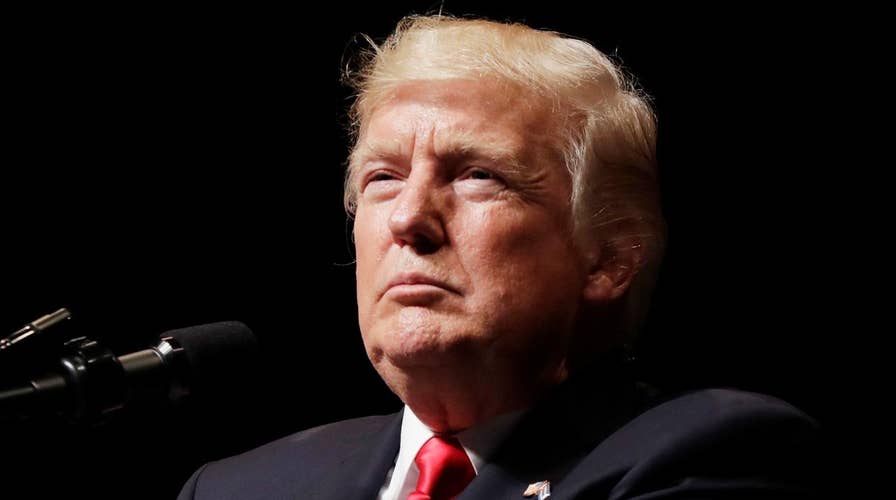Trump: We're canceling Obama's one-sided deal with Cuba
President announces changes to Cuba policies
Sometimes history taps us on the shoulder and reminds us it is a continuum and we are only a point along the way. That happened Friday. Two significant events occurred. They are related. Neither should be treated lightly.
First, Helmut Kohl, longest serving Cold War leader, former Chancellor of Germany, unifier of East and West, the man who presided over the Berlin Wall’s destruction and the end of communism in East Germany, died.
Kohl was an inveterate optimist, a principled friend of America from Ronald Reagan through Bill Clinton. He was especially close to Ronald Reagan and George Herbert Walker Bush. Reagan kept only a handful of photographs on the wall of his office in California. One was of Helmut Kohl. I saw it.
Kohl’s vision was for a free and unified Germany. He pursued the vision with unremitting faith and confidence that it could happen, until it did happen. He was derided by Mikhail Gorbachev, and doubted even by the Iron Lady herself, Margaret Thatcher. But Kohl persisted and prevailed. Freedom prevailed. Germany was unified. Communist East Germany is no more.
By coincidence, President Trump on Friday reset American and global expectations for communist Cuba. He boldly promised that communist Cuba, like East Germany, would one day be free. He envisioned the 60-year yoke of communist oppression, murder and unrepentant violation of all moral norms, ending.
In Miami’s “Little Havana,” the president reframed American foreign policy in terms that Ronald Reagan, Helmut Kohl and Margaret Thatcher would appreciate. He was clear, convincing and eloquent. He defended individual liberty, human rights and the sensibilities of all the long-suffering Cubans and Cuban Americans. He spoke not of things political, but of things timeless and universal. He spoke to all Americans, and to those well beyond America.
Specifically, Trump said: “With God’s help a free Cuba is what we will soon achieve.” And he set a nuanced policy in motion, respecting Cuba’s inchoate sovereignty and challenging the country’s repressive and dehumanizing leaders to change.
Noting that America should not enrich, empower or permit resources that benefit Cuba’s ruthless military and security services, he brought the gate down on policies that allow the transfer of free wealth to communist coffers.
The “previous administration’s easing of restrictions on travel and trade do not help the Cuban people,” he said. So they will stop. “We now hold the cards,” the president said, and will play them.
While permitting divided families to travel and keeping a U.S. embassy open in Havana, he also spoke directly to Cuba’s violation of universally accepted human rights.
He told the story of an eight year old boy, a talented violin player, whose father was shot in front of him, by the Communists, as a dissident.
The young boy was then ordered to perform on radio for the glory of Castro’s communist state. He declined. His home was stormed. He was then compelled at the point of machine guns to play a solo.
So he did. He played The Star Spangled Banner.
That boy, now a world renowned violinist, fled to Spain, then in 1964 to the United States. He was present in the auditorium where Trump spoke. And he played the Star Spangled Banner again. His name is Luis Haza. Sometimes words just fail.
President Trump’s call to restore a hemispheric and global focus on freedom, human rights and an end to terrorism in all variations, is resonant. It tells us that while many in Washington and the media fret over minutia, the larger story of an American and Western leadership of a sort that Helmut Kohl knew and personified, is back.
Count on it. That call was heard in Cuba Friday, just as Helmut Kohl’s call for East German liberty was heard in East Berlin and in Moscow.
East Germany today is free. A former East German now occupies the office of Chancellor once held by Helmut Kohl. Perhaps one day Cuba will be free. Perhaps one day that island nation will be led by someone who heard the president’s speech Friday.








































